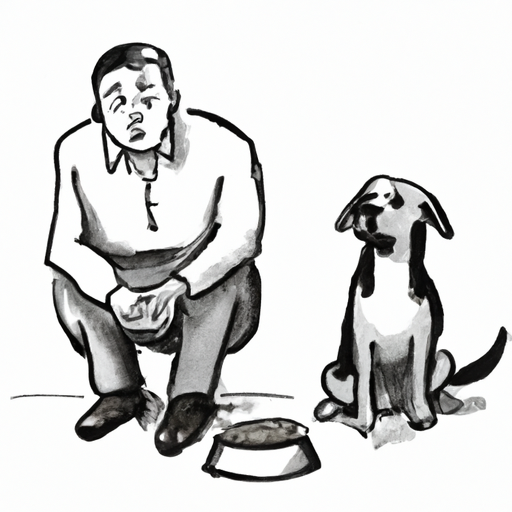Understanding the Issue
When your furry friend refuses to eat, it can be a source of concern. It’s not uncommon for dogs to have off days where they eat less than usual, but if this behavior persists, it’s crucial to understand why. There could be a variety of reasons, from medical conditions to changes in their environment.
Possible Reasons Your Dog Is Not Eating
There are several reasons why your dog might stop eating:
- Health Problems: Illnesses such as infection, digestive issues, or more severe conditions like cancer can suppress a dog’s appetite.
- Dental Problems: Oral issues can make eating painful for dogs.
- New Environment: Changes in surroundings can cause stress and affect their eating habits.
- Vaccinations: Some dogs might experience a temporary loss of appetite post-vaccination.
- Behavioral Issues: Dogs may refuse to eat due to behavioral issues like anxiety or depression.
What to Do When Your Dog Stops Eating
If you notice your dog refusing food, here are some steps you can take:
- Monitor their behavior: Keep an eye on their overall behavior. Are they lethargic? Do they seem anxious? Do they show any signs of discomfort?
- Try different foods: Sometimes, a change in diet can stimulate a dog’s appetite. But make sure the new food is nutritionally balanced and suitable for your dog.
- Consult with a vet: If your dog refuses to eat for more than 24 hours or if they show other symptoms like vomiting or diarrhea, it’s time to consult with a vet.
| Action | Do’s | Don’ts |
|---|---|---|
| Monitor behavior | Observe overall behavior | Ignore other symptoms |
| Change diet | Ensure the food is balanced and suitable | Make sudden drastic changes |
| Consult with a vet | Contact if symptoms persist or worsen | Wait too long to seek professional help |
The Role of Stress in Eating Habits
Stress can play a significant role in a dog’s eating habits. Just like humans, dogs can lose their appetite when they’re stressed. Common stressors for dogs include changes in their routine, new environments, or the addition of a new family member. If you suspect stress is the cause, try to identify and remove the stressor, if possible. If not, consider seeking help from a professional behaviorist or veterinarian.
When to Seek Professional Help
If your dog hasn’t eaten in more than 24 hours, it’s time to seek professional help. Other serious signs include weight loss, lethargy, vomiting, diarrhea, or behavioral changes. Remember, early intervention can make a significant difference in your dog’s health.
FAQ
Q: How long can a dog go without eating?
A: While dogs can go a few days without food, it’s not recommended. If your dog hasn’t eaten in more than 24 hours, consult with a vet.
Q: Can I force my dog to eat?
A: Forcing your dog to eat can cause stress and worsen the situation. Instead, try different foods or consult with a vet.
Q: What can I do if my dog is not eating due to stress?
A: Try to identify and remove the stressor if possible. If not, consider seeking professional help.



